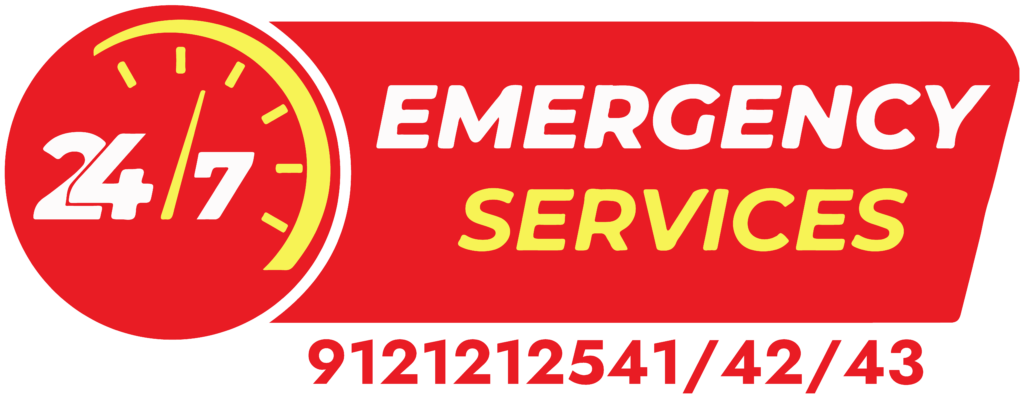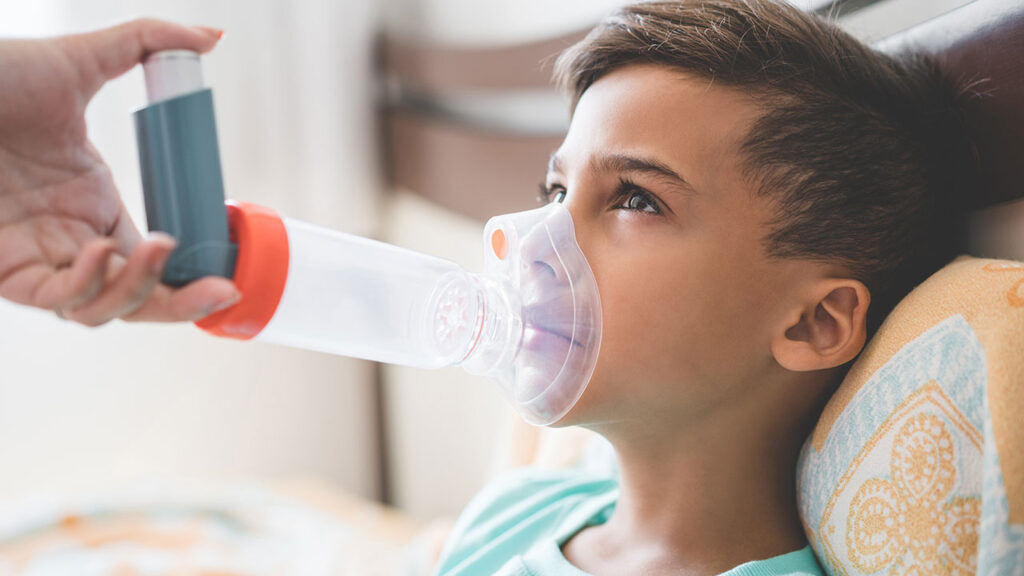Pediatric asthma flare-ups can be frightening—for both children and their parents. These sudden breathing difficulties, often triggered by allergens, infections, or weather changes, require timely and appropriate action to prevent complications.
At River NIMS Hospitals, we frequently treat young patients with asthma, and we understand the anxiety parents face during a flare-up. The good news is that many asthma episodes can be managed effectively at home with the right knowledge, while others require immediate hospital intervention.
In this blog, we’ll guide you through managing asthma at home and help you understand exactly when to bring your child to the hospital.
🧠 What Is Pediatric Asthma?
Asthma is a chronic lung condition where the airways become inflamed and narrow, making it difficult to breathe. In children, it can be triggered by:
- Dust, smoke, or pollen
- Viral infections like cold or flu
- Cold weather or sudden temperature changes
- Physical exertion or stress
- Allergies to food or pets
Asthma is not curable, but it is highly manageable with medication, monitoring, and lifestyle changes.
🩺 Common Signs of an Asthma Flare-Up in Children
Recognizing the early signs of a flare-up can prevent hospitalization. These include:
- Increased coughing, especially at night
- Wheezing or a whistling sound while breathing
- Shortness of breath
- Tightness in the chest
- Difficulty speaking full sentences
- Fatigue or lack of energy during play
- Use of accessory muscles (belly or neck) to breathe
Some children may also exhibit irritability or anxiety—especially younger ones who can’t express discomfort clearly.
🏠 Managing Pediatric Asthma Flare-Ups at Home
If your child is experiencing mild symptoms, home care can often stabilize the situation. Here’s how:
1. Use the Rescue Inhaler or Nebulizer
Always keep your child’s rescue medication (usually salbutamol/albuterol) accessible.
- Administer the prescribed number of puffs or a nebulized dose.
- Use a spacer with an inhaler for better delivery in small children.
- Wait 15–20 minutes and monitor symptoms.

Repeat as per your child’s asthma action plan or as advised by your pediatrician.
2. Calm the Environment
Stress can worsen asthma. Help your child:
- Sit upright for easier breathing
- Stay calm with gentle reassurance
- Avoid strong smells, smoke, or pets
- Use a humidifier if the air is dry (especially in winter)

3. Track Breathing & Symptoms
Many parents now use a peak flow meter to monitor lung function. If readings drop into the caution zone, it’s time to call your doctor or increase medications as advised.

Keep a symptom diary to identify triggers like:
- Food
- Activities
- Sleep position
- Exposure to cold air
4. Hydrate and Rest
Ensure your child:
- Drinks warm fluids
- Gets adequate sleep
- Avoids physical exertion until breathing normalizes
🚨 When to Visit the Hospital
Sometimes, symptoms escalate despite home care. Take your child to River NIMS Hospitals or the nearest emergency department if you notice:
- Severe wheezing or breathlessness
- Inability to speak in full sentences
- Bluish lips or nails (a sign of oxygen deficiency)
- Rapid breathing or chest retractions
- No improvement after 3 doses of rescue inhaler
- Peak flow meter reading in the red zone
- Drowsiness or confusion
Don’t hesitate—time matters in severe asthma attacks.
🏥 What Happens at the Hospital During a Flare-Up?
At River NIMS Hospitals, our pediatric emergency team follows a structured asthma management protocol.
Treatments may include:
- Nebulization with bronchodilators
- Intravenous steroids to reduce inflammation
- Oxygen therapy
- Chest X-rays or blood tests (in complex cases)
- Admission to Pediatric ICU in severe cases
- Referral to our Pediatric Pulmonology Department for long-term asthma management
We also provide parent counseling, medication education, and follow-up planning before discharge.


📅 Building an Asthma Action Plan with Your Pediatrician
Every child should have a personalized asthma action plan that includes:
- Daily maintenance medication (if needed)
- What to do during a mild, moderate, or severe flare
- Emergency contact numbers
- School and daycare instructions
- Triggers to avoid
Our pediatricians at River NIMS will help you develop and maintain this action plan during follow-up consultations.
🍎 Long-Term Tips to Reduce Flare-Ups
Managing pediatric asthma isn’t just about treatment—it’s about prevention.
✅ Do:
- Clean your home to reduce dust and mold
- Keep pets out of bedrooms
- Wash bedding weekly in hot water
- Use asthma-friendly cleaning products
- Encourage flu shots and pneumonia vaccines
❌ Don’t:
- Allow smoking near your child
- Delay starting controller medications if prescribed
- Ignore consistent coughing or nighttime symptoms
- Rely solely on herbal/home remedies without a doctor’s advice
💡 A Real Story: Little Aarav’s Asthma Turnaround
6-year-old Aarav was frequently hospitalized for wheezing and cough. His parents, unsure of how to manage symptoms at home, visited River NIMS for help.
Our pediatric team:
- Diagnosed exercise-induced asthma
- Created a daily management plan
- Trained his parents on nebulizer use
- Identified a dust mite allergy as a trigger
Today, Aarav plays football without fear, and his parents haven’t had to rush to the ER in months.
👨👩👧 A Message for Parents
Caring for a child with asthma can feel overwhelming—but with proper education and a supportive care team, it’s absolutely manageable. At River NIMS Hospitals, we partner with parents to give children a healthy, active life—without fear of flare-ups.

🩺 Final Thoughts: Empowering Every Breath
Pediatric asthma flare-ups can be scary, but knowing how to handle them can make all the difference. Recognizing symptoms early, following a structured action plan, and seeking timely care are key to keeping your child safe and healthy.
If your child is showing asthma symptoms or you want to build a reliable asthma action plan, consult our Pediatric Respiratory Care Team at River NIMS Hospitals today.
Together, we’ll make sure your child breathes freely—and fearlessly.



